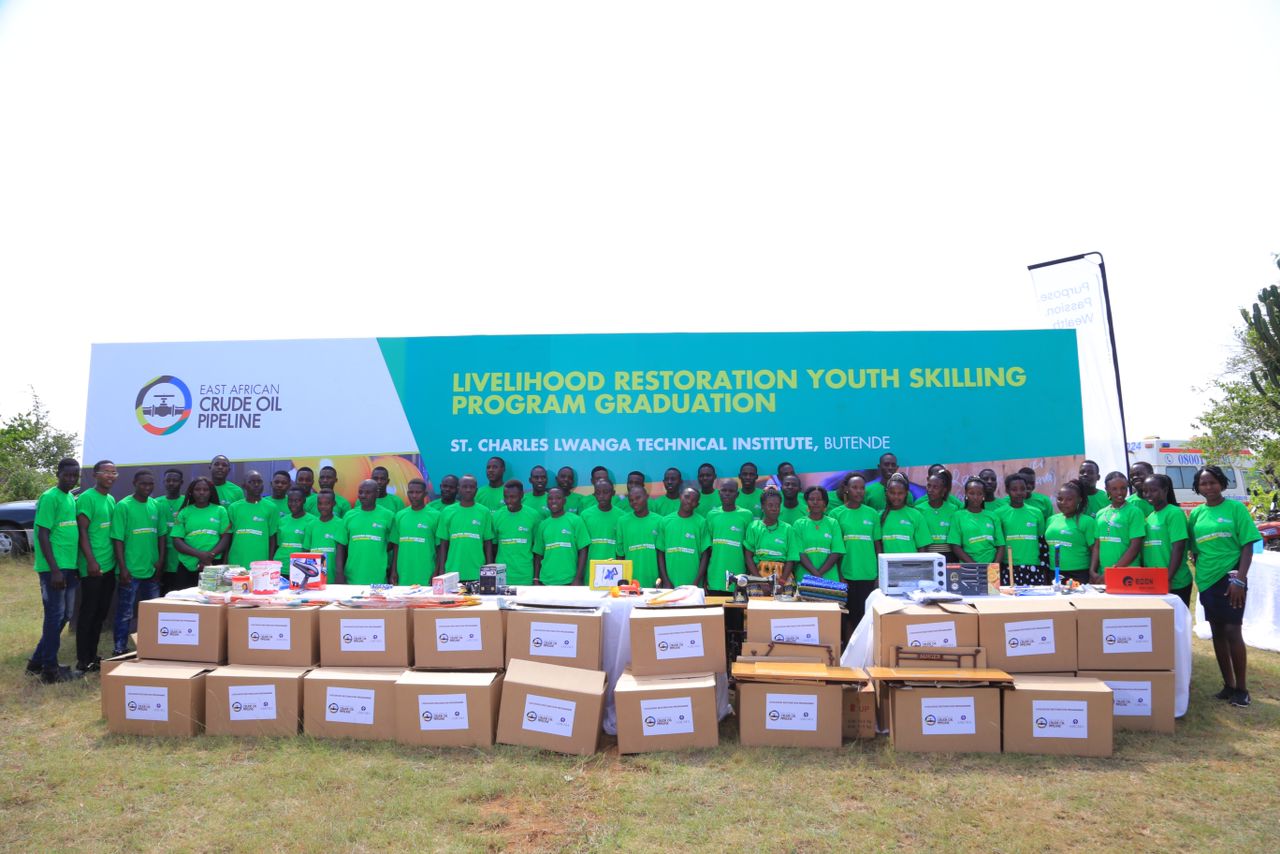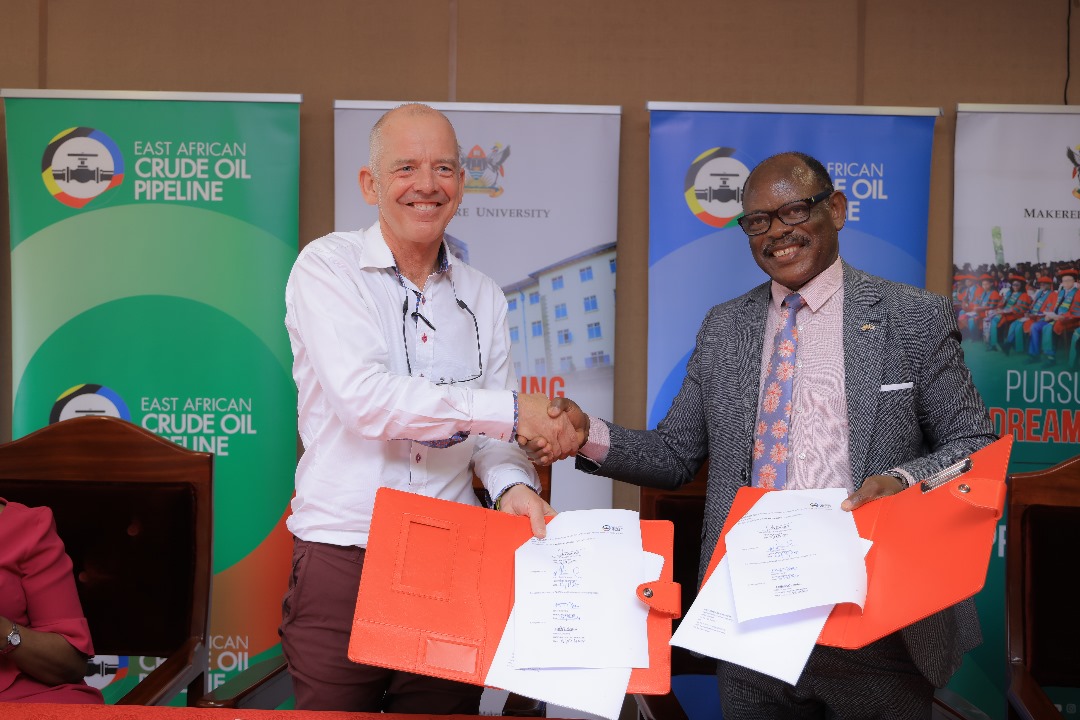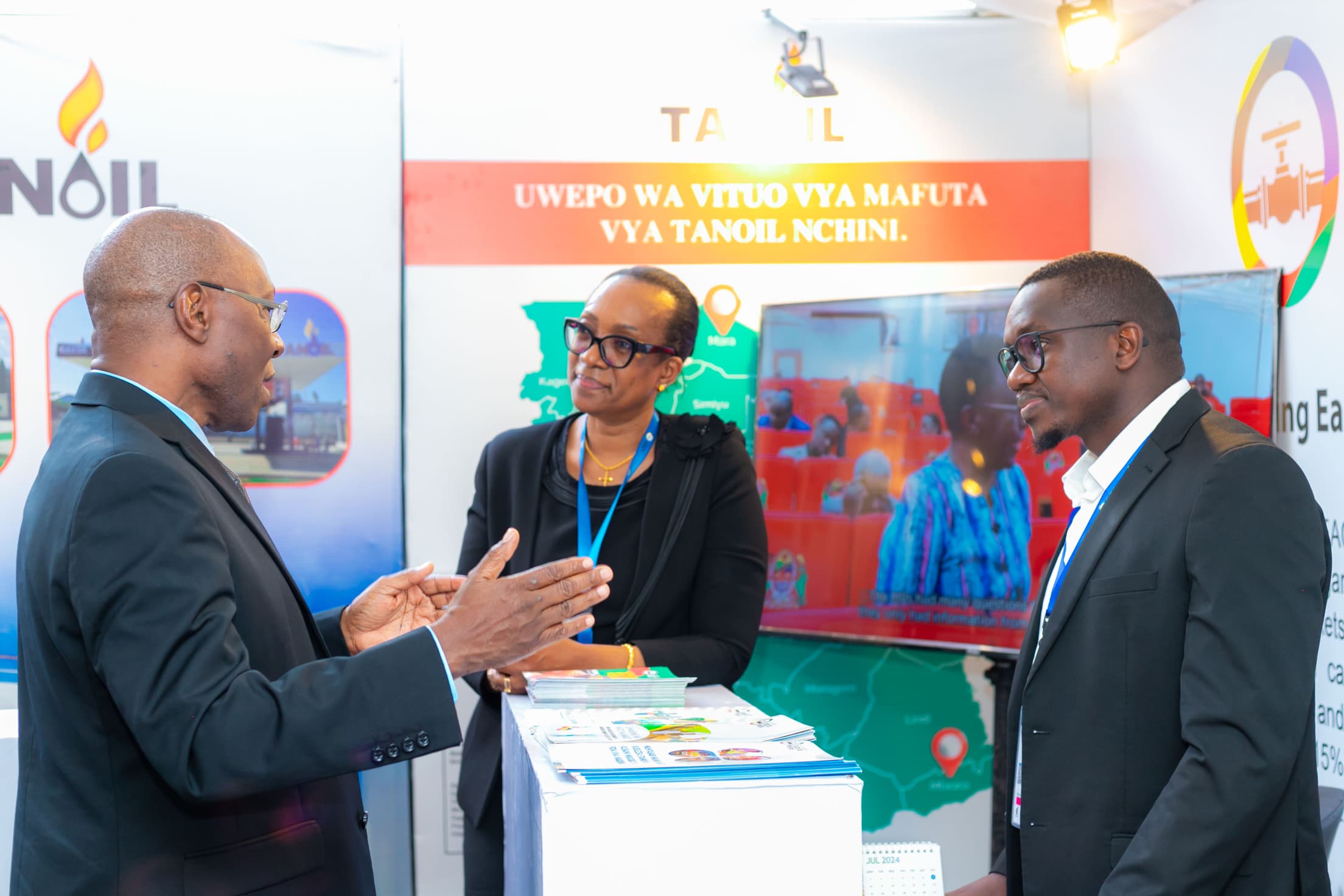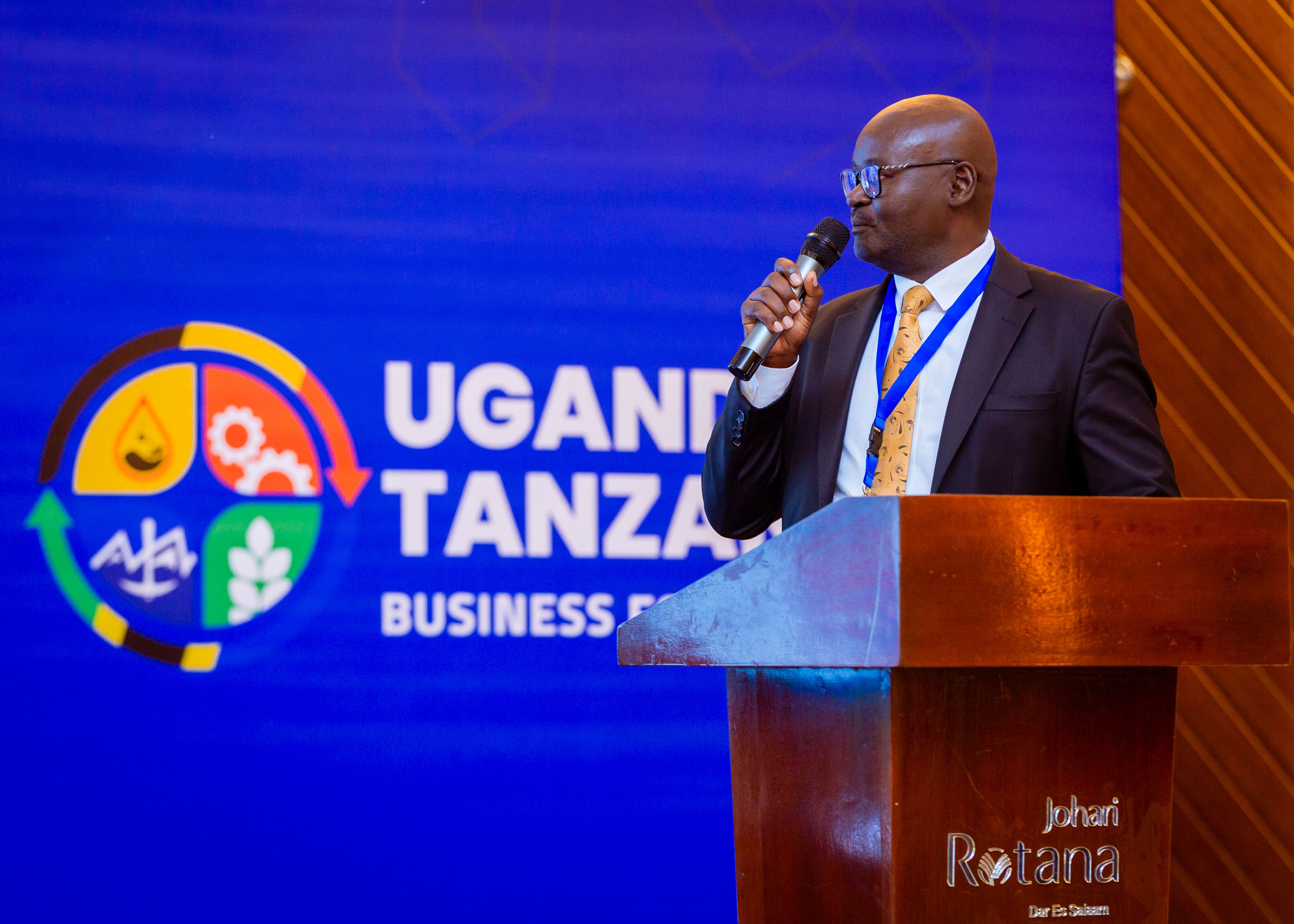EACOP has today signed a Memorandum of Understanding (MoU) with Makerere University on behalf of…

EACOP equips project affected households with income generating tools in Sembabule, Kyotera and Kakumiro Districts.
The East African Crude Oil Pipeline (EACOP) Ltd, has provided start-up kits to Project Affected Households (PAHs) under Resettlement Action Plan (RAP) to setup income generating activities in a bid to elevate their ability to sustain their livelihoods. The support rendered through the start-up kits follows the completion of various vocational skills training programmes by the PAHs at selected institutions in Sembabule, Kyotera and Kikuube Districts. This support is being provided as part of the Company’s commitment to empowering the PAHs through a Global Livelihood Restoration programme aimed at restoring, transitioning, and improving their livelihoods by leveraging available household livelihood resources post-resettlement.
The Start-up kits were identified and procured for 163 PAHs under the different categories of vocational programmes: 26 Drivers, 21 Hairdressers, 25 Tailors & garment designers, 15 Welders, 10 Builders, 6 Plumbers, 6 Caterers, 10 Motor Vehicle Mechanics, 5 Motorcycle Mechanics, 1 Secretary, 6 bricklayers, 3 Carpenters and 5 electricians.
The ceremony was officiated by Mr. Caleb Tukeikiriza, the Resident District Commissioner, Sembabule District. Mr. Caleb commended EACOP for enabling youth by providing opportunities that provide adequate and quality skills to achieve their life goals.
The short-term vocational courses were given to two youth in each eligible household and included Fashion and design, Catering, Driving, Motor vehicle & Motorcycle mechanics, hair dressing, Tailoring and Garment design, welding, Plumbing, electrical installation, building and Construction studies, video and photography, Computer & secretarial studies. The training program started with a total of 181 youth from Project affected Households in Sembabule, Kyotera and Kakumiro.
These received training from:
- Charles Lwanga Technical Institute – Butende in Masaka City
- Mummy’s Institute of Beauty Design and Commercial studies, in Masaka City,
- St Simon Peter Vocational Training Center in Hoima City, and
- St Peters Vocational training Institute in Mubende District
Speaking at the ceremony, Mr. John Bosco Habumugisha, EACOP Ltd Deputy Managing Director, said “We believe that equipping these youth with appropriate skills and start up kits will provide them an opportunity to increase their capacity to start their own enterprises or engage in productive activities that can enhance their household incomes.”
The start-up kits are a symbol of this commitment and will go a long way in boosting the self-sustainability and household incomes of the PAHs, he concluded.
The project through the contractors supported the Youth with tuition, scholastic materials, and a modest starter pack after completion.
About the Livelihood restoration program
- Project-related land acquisition/restrictions leads to a loss/access of assets that leads to loss of income sources or other means of livelihood.
- The objective of the Livelihood Restoration Program is to provide project affected persons whose livelihoods or income levels are adversely affected an opportunity to improve, or at least restore, their means of income-earning capacity, production levels, and standards of living.
Livelihood restoration is going to be implemented in two phases.
Phase 1:
Provide transitional support to households as a short-term measure to support their food security in terms of Dry rations/ food baskets within the first 6-12 months as soon as the affected Households vacate land. The amount you receive and how long you’ are supported depends on how heavily they have been impacted.
Phase 2 & 3:
Provide Households with opportunities and support to improve their livelihoods back to pre-project levels through Agricultural Improvement activities and enhancing skills of household members through vocational training. Phase 3 involves additional optional packages that will be delivered to PAHs after Phase 2.
Those PAHs assessed to have been affected will be supported with both short-term transitional support in the form of dry rations and thereafter be enrolled on the agricultural improvement program and vocational training for selected youth in the affected households.
- The nature of support and duration depends on how heavily you will have been impacted.
- Commencement of Livelihood support begins as soon as PAPs vacate the land and support will begin with PAPs in priority areas (MCPYs) where land acquisition will be acquired first.
- The students that will receive Vocational training are from Project affected households in the Priority Areas (Material Camps and Pipe Yards- MCPYs). Other students from the rest of the Pipeline Area will be enrolled in season 2 that begins in August 2023
- For easy coordination, we have divided the 10 districts through which the ROW crosses into two sections, i.e., the South and North. The south section covers districts of Sembabule, Gomba, Lwengo, Kyotera and Rakai and the North covers districts of Hoima, Kikuube, Kyankwanzi, Kakumiro and Mubende.



